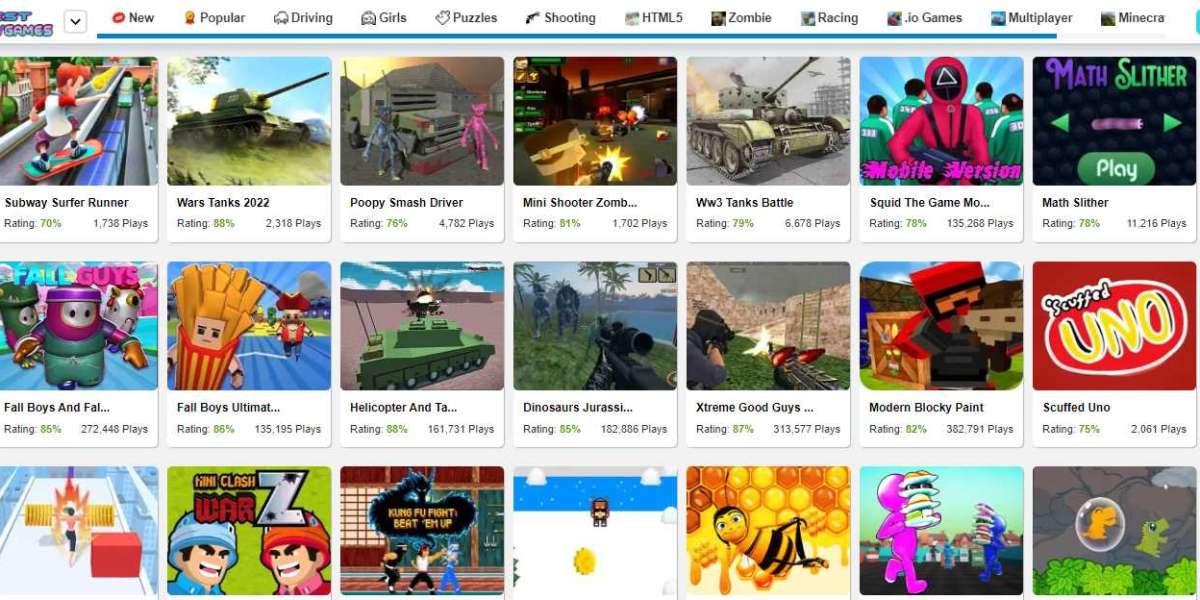In order to give you the most value in this breakdown, I believe the best prism through which to examine Shopify versus Etsy is all about your desired outcomes as a new entrepreneur, whether you're currently just at the idea stage or you're in your first few months of selling. We'll be exploring with a quick overview of each platform, the speed and ease to get started, customizability, features for sellers, customer acquisition, price versus cost. And yes, those are two wildly different things. Limitations to items you can sell. And finally, the bottom line, which one you should choose depending on your products and goals. Without further ado, let's jump right into part one. A quick overview of each platform. Etsy is an incredible marketplace launched primarily for artisan makers, crafters, and artists to sell their creations.
In 2021, Etsy saw over 90 million active buyers from across the world, make purchases through their site. Shopify on the other hand enables over a million regular folks just like us to have their very own website to sell online. And in 2021 saw those websites sell well in excess of $150 billion from every corner of the globe. From a straight up platform to platform comparison, the most major immediate difference is that Etsy is a marketplace where every single seller competes directly with every other seller in the same environment, where as Shopify is at its core, an enabler of independent ownership where your site is truly your site. But let's head on over to some head-to-head comparisons. Beginning with the speed and ease of getting started with selling. With Etsy, signing up for an account is quick. And in fact, they sort of force you into it since you can't even complete signing up until you have created at least one listing. If you have a few photos of what you want to sell, going from sign up to sell ready on Etsy can take just 45 minutes or less.
With Shopify, this is your site. And even though there are boatloads of beautiful and effective templates to make creating your site efficiently, the very nature of it being your site means you're naturally gonna dedicate more time and generosity of thought to represent you and your products exactly the way you want to. I liken this comparison of the speed and ease of getting started to the difference between renting an apartment and building your dream home. You see with Etsy, you are essentially a unit in a wonderful apartment building. Whereas with Shopify, you are designing and building, to your exacting specifications and standards, a dream home that you own.
If we're just looking at the speed and ease of going from sign up to ready to sell, Etsy definitely takes the point over here. Next up customizability. With Etsy there's unfortunately no real customization available to make your shop stand out. Again, Etsy is a marketplace, much like Amazon or eBay. So your products all sit within design aesthetic and user interface set forth by Etsy. You're basically limited to changing the structure of your collection and product pages.
A pro tip, by the way, if you do decide to sell on Etsy. A great way to differentiate yourself from your competitors is to have a unique colored and textured background for the main photo of all your listings. So they pop off the search results page compared to every one else's listing. But sliding back to the comparison, your products are essentially tenants in Etsy's apartment building. On Shopify, you can design your website any way you want. Customization is nearly infinite. You can choose from dozens of themes, edit code, and brand your website your way.
So fonts, images, image placement, pages, categories, heck every everything down to the shape and color of your buttons is entirely up to you. You can start with one of the countless themes available to you and make it truly your own. And beyond that, the tremendous catalog of apps and plugins available to you enable not just limitless aesthetic customization, but the customization of functional and value added features are limitless as well. When it comes to making your online selling presence unique, there's no contest here. Point goes to Shopify. Moving onto features and value added tools. When it comes to Shopify, the list is so extensive. We could make an hour long video and it would still just barely scratch the surface. But a few key standouts include built in tools like abandoned cart recovery, where your site automatically emails visitors who added items to their cart, but never checked out, reminding them of what they were planning on buying.
Shopify also offers integrations to various social networks, including Facebook and Instagram. So social scrollers can buy directly in their favorite social media platforms without ever needing to leave those apps. Shopify even offers a built-in blog to publish relevant content marketing pieces that build traffic, greater brand loyalty while simultaneously improving your SEO rankings. You also get robust third party calculated shipping rates for accuracy and offering options to your customers. Just to name a few. With Etsy, you're really being forced to play entirely by their rules. Of course, they do have extra tools and features as well. Like Shopify, they have a mobile app that lets you manage your store on the go and like Shopify, they offer you discounts on postage, albeit less of a discount than what Shopify offers. Etsy also has paid add-ons like Etsy Plus and Pattern by Etsy.
A few other features are added, like the ability for your customers to request stock alerts. But again, all of these and way more are already included with the most basic Shopify plan. No contest here. When it comes to tools and features, point confidently goes to Shopify. Next on the list to compare, discoverability and customer acquisition. Etsy being a marketplace means that their existing customer base of millions are already there searching for unique crafts and art to buy. Although the competition can be fierce, the fact that your products are potentially discoverable by a large customer group, that's already on a website with buying on their minds, is really awesome. It's your job however, to stand out from the crowd, but the crowd is already there. And although you'll reap the benefits of free traffic keep in mind, you don't actually own your audience.
Shopify gives you more control over your marketing, as you are the owner of your website. For example, Shopify has built in marketing features and apps to help you drive traffic to your site so that you can build your audience with Shopify's built-in blog, you can help people find your store with SEO tools to edit title tags, meta descriptions, and product details. You can even create online marketing campaigns to promote your products like email marketing, Facebook ads and Google smart shopping so that the right people see your store. I mean, Shopify even has a marketing dashboard where you can pull actionable insights to improve your marketing efforts. The ability to own your marketing is one of the absolute best reasons for choosing Shopify over Etsy. And because of this, I'll have to get the point here to Shopify. Continuing on though, let's compare the price versus the cost of both platforms. It's important to understand the difference between price and cost.
And one of the easiest product categories to demonstrate this with are cars. You see the price of a car might be $25,000. Sure. But the cost is that 25,000 plus 200 a month for insurance, plus 150 a month for gas, plus 700 a year on average for scheduled maintenance and repairs, not to mention car washes, winter tires. If you live somewhere with snowy winters and maybe even the 10 bucks for a bobblehead figurine for your dash. And when it comes to Etsy and Shopify, the prices and costs are wildly different. If you are just starting out Shopify Basic is what you'll need and has a monthly fee of 29 US Dollars. That's the price. But the cost with the incredible feature of Shopify payments is that you have a zero transaction fee and you just pay the standard 2.9% credit card processing fee, plus 30 cents per charge. So to really demonstrate this in action clearly, let's say that you start your first month with one product that costs you $3 to make and you charge your customers $10 for it. And to use round numbers, let's say you sell 100 in your first month. Each of those $10 transactions incur the 2.9% credit card processing fee, which works out to 29 cents.
Plus the additional 30 cent charge for a total of 59 cents. That means that of the $10 gross you earn from each customer, $3 was your cost of inventory and 59 cents was the total transaction cost, leaving you with $6 and 41 cents. With 100 identical transactions that leaves you with $641 in profits. And of course you subtract the $29 for your monthly subscription to Shopify basic, which means your business pockets $612 in your first month. Awesome. Now let's use the exact same example with Etsy. Etsy basic is free and has just a 20 cent listing fee which lasts for four months. Much cheaper than the 29 US Dollars per month, especially since with our example, you are starting off with just one product. The difference though, is that not only is there a similar credit card processing fee of about 3% and a 25 cent charge per sale, Etsy, beginning in April of 2022, will bump up their current 5% additional transaction fee to have a 6.5% one. So let's do the math. For each of those same $10 sales of your product.
Read More: Shopify vs Squarespace (2022) — Which is Best? - Style Factory
Etsy takes $1 and 20 cents in total, 65 cents come from their new 6.5% transaction fee, thirty cents for the 3% credit card processing charge and 25 cents for the charge per sale. Your cost of good sold was $3. So after all is said and done, you're left with $5 and 80 cents. And with selling to 100 people in your first month, you're left with a total of $580. So comparing side by side, with Shopify you ended up with $612. And with Etsy, you ended up with $580 and you may be feeling kind of indifferent thinking, a $32 difference. Isn't that significant? Why did you make me sit through all of that math? Because here's the thing. What if instead of one product you have a hundred products and what if instead of 100 sales a month you have a thousand sales in a month? That extra 6.5% fee charged by Etsy can amplify to hundreds, if not thousands of dollars lost in sheer profits as you scale.
This is the difference between price and cost. And if you plan on growing, offering more products and attracting more customers, losing out on potentially thousands of dollars, every single month, to fees is a difference between hiring an employee or tremendously effective paid ads or heck, just extra liquidity for you and your family. Oh, and I mentioned it briefly before but Etsy currently offers shipping rate discounts to sellers of up to 30% while Shopify basic offers postage discounts of up to 45%. A potential 15% Delta is gigantic, no matter how much or how little you're selling. So when it comes to price versus the cost for these platforms, Shopify is the clear winner.
Now, continuing on with our comparison, let's move on to the limitations of what you can sell on each platform. With Etsy, it's much easier to talk about what you are allowed to sell, since most things are not allowed. There are just three categories of acceptable products, handmade goods, vintage items that are at least 20 years old and craft supplies. Everything else is prohibited on Etsy. So if, for example, you are a sneaker reseller and you lined up for three days to buy a newly released pair of Jordans. You can't sell them on Etsy, because they're not at least 20 years old. Or let's say you made some graphic designs and you found a silk screening company to put your designs on t-shirts, technically you are not allowed to sell them on Etsy either because you yourself did not do the silk screening.
With Shopify, almost everything is fair game, except for a very common sensical list of restricted items, including but not limited to illegal items in your target geographies, any materials exploiting children or copyright infringement. If you are interested in the full list of restricted items, we will link it in the description below, but looping back to the whole point of this comparison. Etsy is respectably firm on staying true to their roots on their commitment to providing a robust marketplace for artisanal creators. Shopify on the other hand is staying true to its roots of creating the conditions to enable anyone, including you, to sell virtually anything.
Finally, in this last point of comparison, let's just be direct. Look, even though we are Shopify, there are absolutely cases where Etsy is the better choice. Are you an artist or maker that creates your products by hand, without outsourcing any of your production? Do you also treat your artisanal crafts as more of a hobby or a side hustle with no real plans to grow beyond yourself as the end to end business person right now? Are your forecasted sales such that you don't really see yourself being impacted too greatly financially by the additional 6.5% transaction fee from Etsy? Is your sticker price and profit margin so low that carrying Shopify's $29 monthly service subscription makes no financial sense. If you answered yes to these questions, Etsy is almost definitely the best option for you but for everyone else, Shopify is a clear choice. I mean, Shopify has fewer product restrictions, more flexibility for store designs, less transaction fees and truly allows you to own your brand.
Even if you are a small scale, artisanal crafter many current Shopify users started out on Etsy as just casual side hustlers but realize they had something special, something that could enable real growth. So they migrated to Shopify after they were ready to scale. And speaking of which, whether you're still debating or you're currently on Etsy, and thinking of making the leap to owning your very own site. I welcome you to sign up for a completely free, no strings attached trial for Shopify, where you can tinker around for a few weeks with no pressure and really get to experiment. You can access your free trial by clicking right up here or hitting the link down in the description below. And also, if you have specific questions about specific differences, don't hesitate to comment below as well. We really listen to you and your comments and questions often guide future videos we create. After all the whole point of this learn with Shopify channel is to provide the entrepreneurial community with as much value as possible.








